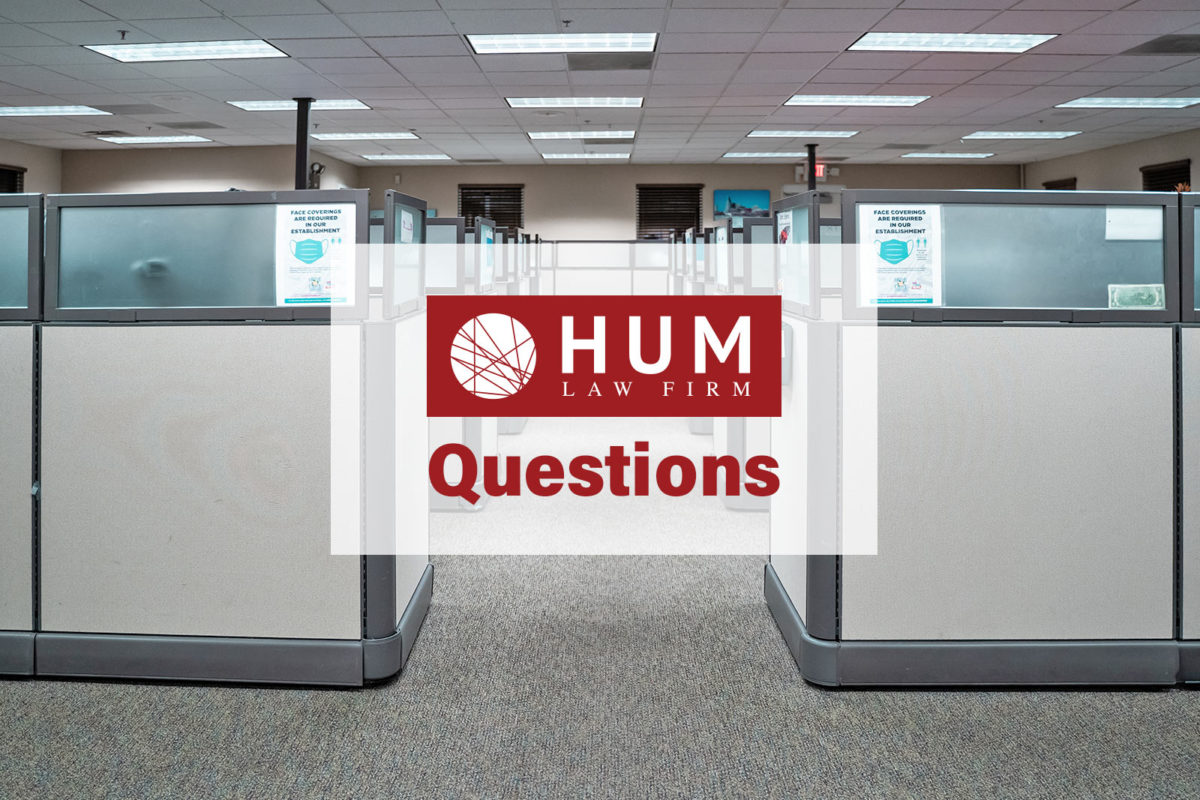In Ontario, public health no longer requires face coverings and proof of vaccination in most settings. In response, some private employers recalling their workforce back into the office are doing away with similar requirements. Unless agreed explicitly in your employment contract, you don’t have a right to work from home, even when you might disagree with your employer’s current approach to managing COVID-19 in the workplace. Employers have a right to recall their employees to work in their offices. There are narrow exceptions for medical or human rights grounds.
Defining employer responsibilities
Pursuant to the Occupational Health and Safety Act (OHSA), your employer is responsible for providing a safe and healthy work environment. To ensure this, your employer can implement a diverse range of measures to reduce your risk of COVID-19. Employers’ efforts to provide a safe workplace will vary depending on the circumstances of each workplace. Importantly, under the OHSA, employers’ protective measures for employees returning to the office need to be reasonable, not perfect. There are certain aspects your employer cannot control. For example, while you may have understandable fear pertaining to your work commute, this is not a required consideration for your employer. Your commute is not part of the workplace. Thus, your fears of contracting COVID-19 are irrelevant so long as your employer complies with its health and safety obligations under the OHSA in the workplace.
Exceptions & Accommodations
With this in mind, if your hesitation to return to work is due to the fact that your workplace is a high risk environment where physical distancing and other protective measures are not possible, there are steps you can take. First, report to your employer what workplace circumstances led you to believe that returning to the office will endanger your health. Second, wait for your employer’s assessment regarding your concerns. Third, if, despite your employer’s assurances, you have reasonable grounds to believe that working in the office is dangerous, ask your employer to involve the Ministry of Labour (the “Ministry”) to investigate.
Notably, the Ministry’s investigation will not assess whether the employer has eliminated all potential work-related COVID-19 risks. Rather, the Ministry will examine whether the employer’s protective measures were reasonable in the circumstances. Thus, if the Ministry finds no legitimate basis for your complaint, you need to return to the office as per your employer’s request. Conversely, a finding that the workplace is unsafe will permit you to work from home until the employer achieves compliance with the OHSA.
Despite the above, if you cannot return to the office because of a specific medical condition, you are entitled to request an accommodation from your employer pursuant to human rights legislation. This may allow you to retain your current work from home arrangement, though it may also result in some other work arrangement that will accommodate your health condition. Similarly, if you are a caretaker of a family member, notify your employer of the situation so you can be accommodated accordingly.
The employer’s duty to accommodate for medical conditions or caregiver obligations is not unconditional. The employer has the duty to accommodate, and to find out, often through discussions with you, a way to accommodate your needs. However, the employer must accommodate where there are legitimate medical conditions or caregiver obligations, unless doing so would cause the employer undue hardship.
In sum, subsequent to public health officials easing mandates, employers’ obligation to fulfil their occupational, health, and safety obligations can take many forms. For instance, employers in high-risk environments where ventilation and distancing are non-existent may insist on masking to protect their workforce from COVID-19. On the contrary, employers in low-risk environments where hygiene, distancing, and ventilation are easily achieved may remove masking and vaccination protective measures. The ultimate decision on how best to protect an employee’s health in the workplace lies with the employer, not the employee.
If your request for accommodation has been denied we encourage you to seek assistance from Hum Law firm immediately to ensure you are treated fairly. Contact Hum Law today at (416)214-2329 or Complete our Free Assessment Form Here.


